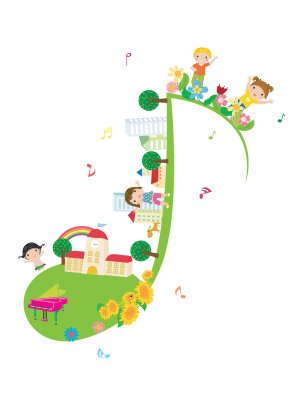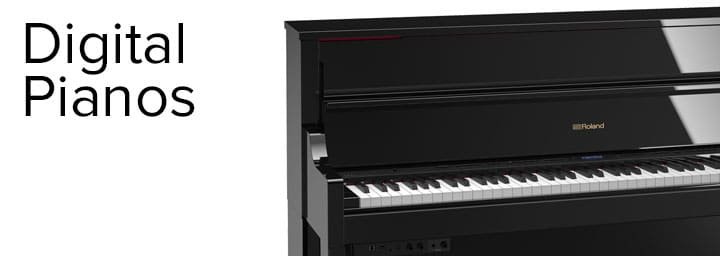Piano lessons for kids can really accelerate their learning. This is important because children can get so much from learning to play an instrument well. This includes:
- improved hand-eye coordination
- patience to learn and master a piece
- social skills from playing with the teacher or others and
- a general love and appreciation of music from an early age.
If your child begins piano lessons, they will need an instrument to practice on at home. But if ‘little Freddie’ is interested in playing the piano one day, and keen to kick a football around the next, how can you be sure it’s a good investment?
Playing the piano takes time, practice and motivation. Thankfully, there are ways to keep youngsters interested and make learning fun and exciting.
Contributed by Roland UK
The benefits of a good teacher
Lessons are the best way to learn how to play an instrument and will establish good techniques from the outset. A teacher should be able to motivate and enthuse a child. As a result, with the right encouragement they will enjoy thier lessons and even practice on their own at home. A good teacher will:
- Provide structured lesson plans with a goal in mind for each session
- Identify technical problems with playing technique, and nip bad habits in the bud
- Draw on their music and teaching experience to provide tailored lessons based on how the pupil learns (for example, do they learn by doing or by listening?)
- Nurture a love of music by encouraging playing and listening to music the individual pupil will enjoy.
What’s the best age to start piano lessons for kids?
 It’s helpful if a child has reached a certain level of development before they begin lessons. This is usually past the age of six. For instance, it’s important that they can stay focused for at least 10 minutes. It is also beneficial if they can perform basic addition and know the letters and order of the alphabet up to G. Also, it helps if the child has reasonable finger independence so they can play individual notes. This will be something a teacher assesses in the first lesson.
It’s helpful if a child has reached a certain level of development before they begin lessons. This is usually past the age of six. For instance, it’s important that they can stay focused for at least 10 minutes. It is also beneficial if they can perform basic addition and know the letters and order of the alphabet up to G. Also, it helps if the child has reasonable finger independence so they can play individual notes. This will be something a teacher assesses in the first lesson.
Every child develops differently, so it may be useful to find a teacher who specialises in lessons for children. These will often be in groups and centred around developing skills needed to begin individual music lessons.
The advantages of learning to play a digital piano
Digital pianos have a number of innovative features that can help create interest. These will make practice time enjoyable and keep kids motivated:
- Variety of sounds: Children can experiment and explore the different sounds available on many digital pianos. They can learn a piece with one sound and switch to another to see the difference it makes. they can also mix and create their own ‘new’ sounds.
- Record and playback: Youngsters can use this feature to record their performance and listen back to see how well they did. On certain digital pianos the record feature can be quite complex. A digital piano in which recording playback is intuitive and simple would be best for children.
- Inbuilt metronome: This is a useful feature for developing rhythmic skills. It is particularilyuseful when a pupil is rushing ahead or having difficulties keeping up with a piece of music. The metronome helps develop an internal sense of time, which will help improve their playing.
- Apps and games: Apps that help develop sight reading such as identifying a note, or playing in time with a prompt, create a good break in a practice session. Any app that syncs with your digital piano is a good option as you can display it in front of you as you play.
Recommended article: The Best Apps for Learning Piano
Making the most of practice time
When it comes to length and frequency of practicing, it is really a case of quality over quantity. A practice session for a youngster should start with a warm up (perhaps an easy piece) and then a goal. This goal can be as simple as mastering a single bar or two of music. Once achieved, it marks the end of the practice session. This enables a much more productive lesson and avoids clock-watching.
With piano lessons for kids, practicing just five minutes a day will make a difference to your child’s technique and ability. However, as a parent, it’s always tricky to strike the balance between being supportive and encouraging – and just plain pushy. Gentle perseverance, a good teacher and the innovative features of a digital piano should help motivate your youngster to play and keep learning varied and fun. So if they start young, and practices hard, who’s to say they won’t be the next Chopin (or Tom Odell, if he prefers)?
Five tips to keep youngsters motivated to play
 Use the different sounds on a digital piano to make learning fun and interesting
Use the different sounds on a digital piano to make learning fun and interesting- Split difficult pieces into manageable sections to boost their self-confidence
- Start the practice session (even if it’s only a short one) with a warm up, such as a hands separate exercise
- Use an app to keep practice interesting and to motivate your child to learn through games, following on-screen instructions and competing against other players
- Children are best motivated when they are learning pieces they want to play. A good way to get them to enjoy music is to play and listen to many different types, especially music which is current and modern.
Subscribe below and receive everything you need to know about starting to play the piano.
Related Articles
THE PARENTS GUIDE FOR KIDS STARTING TO LEARN PIANO
BEST APPS FOR LEARNING PIANO
SHOULD MY CHILD PRACTICE PIANO EVERYDAY?
SIX BENEFITS OF LEARNING ON A DIGITAL PIANO




